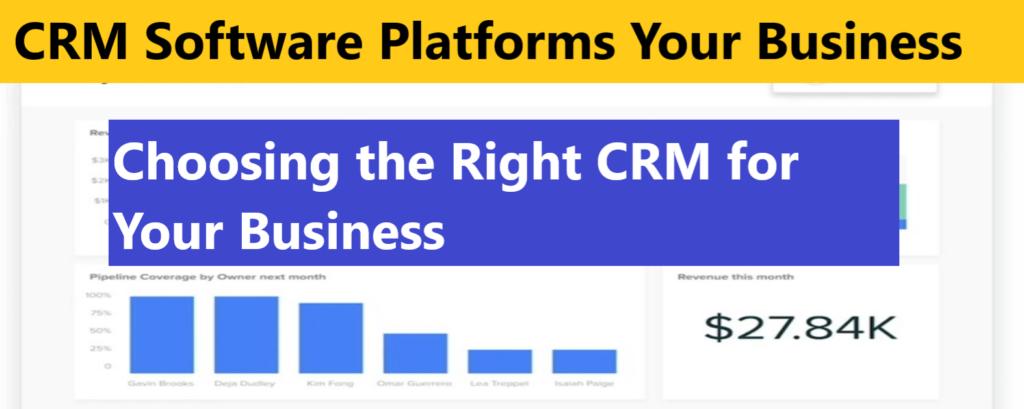
In the 2024 fast-paced business scene, creating good customer relationships is the most important thing. It can be quite a complex process trying to select a platform. But fourteen CRM systems catch my eye this time. Let’s go through the nine “green checked” CRM software alternatives, which means they are the best, and their corresponding trademark characteristics as well as what makes them stand out.
1. Zendesk Sell
Zendesk Sell, the latest and newest CRM, is simple and smooth for firms of all can setup and use. Being loaded with tools, it not only empowers the sales team to ramp up their efficiency but also simplifies the operation, and moreover, it offers an unmatched line of sight through the pipeline.
- Key Features: Email tracking, activity reporting, customizable dashboard, mobile app, seamless integration.
- Benefits: A rewarding experience for the average user, a powerhouse for sales features, unified platform for sales, marketing, and customer service.
2. HubSpot
HubSpot that brings new businesses on the CRM bandwagon to another level with their user-friendly dashboard that is the key to all the necessary tools.
- Key Features: Reporting dashboards, company insights, deal tracking, pipeline management.
- Benefits: Friendly to beginners, customization options, conversation intelligence, email tracking.
3. Less Annoying CRM
If you want to bring out the peace of mind in your business so that it is ‘Less Annoying CRM’, then that’s just it. It is the initiator of small businesses in the CRM field. It does this by making the CRM process short, easy, and incorporated with items like the direct contact management system, and inteligent search system.
- Key Features: Calendar and tasks, simple pipeline management, customization, mobile access.
- Benefits: User-friendly, intuitive, perfect for small businesses.
4. Sales Creatio
Designed for big businesses, particularly in the mid-to-large market, Sales Creatio is a CRM tailor-made to help in the management of the sales, marketing, and services on one place. What stands out, among others, is low-code technology, a feature that allows users to personalize the platform even without coding skills.
- Key Features: 360-degree customer view, field sales, project management, orders and invoices.
- Benefits: Comprehensive CRM, low-code customization, caters to larger businesses.
5. Apptivo
Said to be the one with the highest level of interoperability, Apptivo is a totally online CRM accessible from anywhere with an internet connection or a browser. Even with a more focused list of features, it comes along with an abundant set of more than 65 integrated applications and successful sales pipeline management.
- Key Features: Social news feed, IMAP email integration, drag-and-drop email templates, developer API.
- Benefits: Fully online, device agnostic, extensive integrations, strong sales pipeline management.
6. Insightly
Rather than assembling it separately, the Insightly CRM app follows the Google Workspace suite, which allows it to work hand in hand with the Google Apps account. This feature alone reduces the learning curve and also simplifies the process of getting it incorporated into everyday operations.
- Key Features: Automatic address book, fast search, web-to-contact forms, file sharing.
- Benefits: Google integration, quick adoption for Google users, streamlined processes.
7. Salesforce
Salesforce, which is one of the industry leaders in CRM, capitalizes on AI to complete duties and automation efficiencies. Besides that, it has solutions for both commission management and call center management, which cover a wide range of business needs, even those of a small business.
- Key Features: Quote-to-cash automation, automatic opportunity management, sales forecasting, document management.
- Benefits: AI-powered automation, a plethora of functionalities, and a solid sales suite.
8. Copper
The ones who like to use all the G Suite tools advanced by Google find in Copper an excellent application with the best connection. Despite its capabilities feeling somewhat out of date, users are often impressed by its simple and user-friendly interface.
- Key Features: Pipeline reporting, Google integration, project management, task automation.
- Benefits: This software is very user-friendly and integrates smoothly into Google Workspace.
9. Zoho CRM
One of a kind CRM that is built in a way that you can use it with a few of various sizes of businesses, Zoho CRM is one piece of tech any company should have. It has everything you would expect from customer relationship management software and even Zia, an AI assistant that has enhanced productivity.
- Key Features: Workflow automation, deal management, process management, journey orchestration.
- Benefits: AI assistant Zia, caters to all business sizes, feature set covers all the basic requirements of the software.
AKSO READ – How To Become Financial advisor in 2024, Salary, study cost, ans scope and more
Choosing the Right CRM for Your Business
If you are a small or medium-sized business, your focus should be how the CRM could benefit you, in terms of customer service, sales, and marketing. This is relevant not only for the current company size but the future situation as well.
- -Retain the user-friendly interface by placing it on top of the list along with other best practices.
- Features: To recognize the significant features, consider the regulations as well as functions like contact management.
- Integrations: Guarantee that it can be easily connected to your email or/and marketing platforms that you are already using.
- Budget: Based on your budget, pick out a CRM that provides the most value.
A well-rounded exploration of the selection of the highest-graded CRM platforms questioned with the criterion developed by you how well you can make use of your business through 2026, but undoubtedly, you will be satisfied with those four. Are you endowed with the best CRM in your business? Personally, there may be certain areas of your business which you have not explored.

